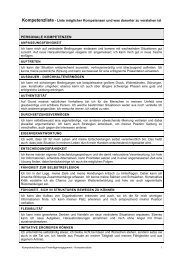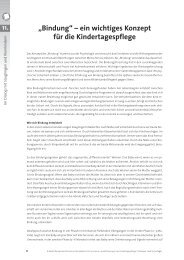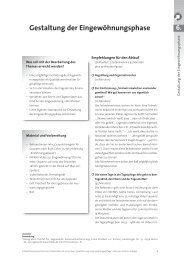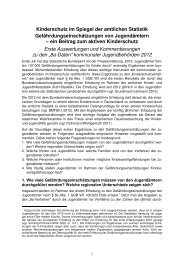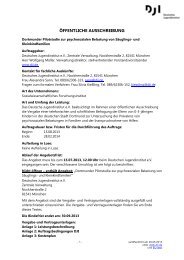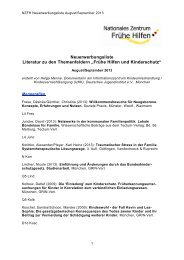download - Deutsches Jugendinstitut e.V.
download - Deutsches Jugendinstitut e.V.
download - Deutsches Jugendinstitut e.V.
You also want an ePaper? Increase the reach of your titles
YUMPU automatically turns print PDFs into web optimized ePapers that Google loves.
spanning the fields of education, health, employment and security and these also demanded<br />
transversal implementation.<br />
It can be observed that in none of these countries the field of youth politics provided<br />
the starting point, but rather dominant political themes such as security, urban<br />
development or employment which had a great interest in avoiding an increase of<br />
expenditure during the next few years and instead were aiming at a decrease in expenditure<br />
through preventative measures. These areas carry more weight within the context of<br />
national politics than e.g. education and youth politics departments, provided that these<br />
departments actually exist independently in the relevant countries.<br />
Management process<br />
Differing practices co-determined by their social welfare context are also evident in the<br />
management of these programmes. The pronounced orientation towards a local, selfdetermined<br />
programme implementation or aspects of financial control is closely related to<br />
liberal welfare contexts. In Ireland and Great Britain for instance, management is<br />
undertaken via a national framework programme which determines essential parameters<br />
while still leaving substantial latitude for a flexible local programme structure. In Great<br />
Britain, an additional element is integrated to control the dimensions of the funds to be<br />
allocated. In both countries, a local strategic orientation is frequently lacking despite the<br />
existence of a national strategy; the programmes are not sufficiently anchored in a<br />
consistent local policy for the improvement of living conditions for these disadvantaged<br />
children and young persons. For this reason, additional national parameters had to be<br />
created in Ireland to limit deviations in local implementation.<br />
In France, this overall control is governed by special contracts between the centralised<br />
state and the prefectures which operate across the board on a localised level. Annually<br />
renewable target agreements are concluded on the basis of general parameters. A<br />
transversal orientation on a national level corresponds here to a work structure across the<br />
board on a local authority level.<br />
Germany with its federal system is oriented towards a cooperative management culture<br />
(involvement of Länder [federal states]) and an interconnection between the state and civil<br />
society. The framework is created on a national basis and the implementation of individual<br />
programme elements on the basis of local action plans within local authorities. The<br />
network is viewed as a management actor. Here there is a substantial influence through the<br />
welfare state and structural context on the construction and implementation of national<br />
programmes, above all in the involvement of civil society resources.<br />
In Portugal, it is difficult to estimate the degree of control as several adjustments were<br />
undertaken during the implementation of the programme, namely from top-down via<br />
bottom-up to circular management and currently inside-out management. This<br />
management mechanism functions through the swift relaying of information and decisions<br />
through an intermediate switch point between the ministry and local projects. This was<br />
among other reasons associated with the change from a more interventional to a more<br />
interactive approach regarding content. The example of Portugal underlines the fact that<br />
programme initiatives can also lead to the development of new management processes and<br />
112





